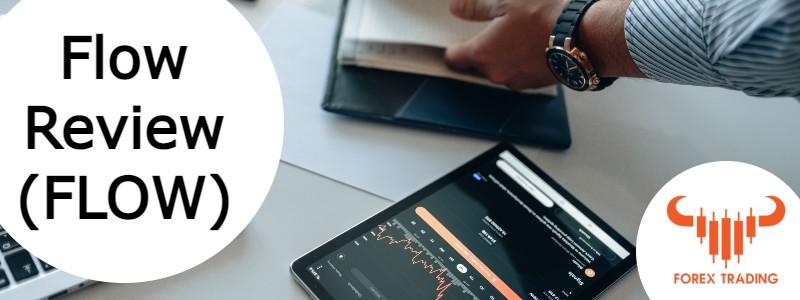What is Flow?
Flow is a Distributed Ledger Technology (DLT) protocol that can be used to develop NFTs, blockchain-based games, and crypto-powered businesses that use blockchain-based apps. In this review, we take a closer look at the history, features and tokens of the Flow protocol.
Flow is an ACID (Atomicity, Consistency, Isolation, and Durability) -compliant, developer-friendly blockchain that was designed to scale without sharding and it allows users to be in control of their data, open global markets and build online economies that are easily accessible and to create tradeable digital assets.
The multi-role node, smart contract-powered architecture used by Flow enables the development of dApps with high-level scalability, high throughput, and low latency.
Flow is focused on improving the user experience of applications and development thereof, and producing internet-scale protocols that can be onboarded and integrated seamlessly.
Who created Flow?
Flow originated from Dapper Labs, which is the NFT company that originally revolutionized the blockchain industry by introducing NFTs and collectable digital assets to the market.
This is also the company that developed CryptoKitties and its focus is on producing blockchain-powered gaming solutions.
CryptoKitties was successful but it was built on Ethereum and with its slower transaction speeds and higher transaction fees because of this, Dapper Labs was determined to create a customized blockchain that had everything they wanted.
What are the Features of Flow?
Flow is designed to significantly improve scalability and is capable of handling up to 10,000 transactions per second.
By using a proof of stake consensus mechanism, validators are required to stake a certain number of FLOW tokens to participate in the network, and the roles of miners and validators are split into four different roles.
There are 4 types of validators on the Flow network:
- Collector Nodes increase efficiency
- Execution Nodes enable speed and scale
- Verifier Nodes guarantee correctness
- Consensus Nodes ensure decentralization
Flow offers built-In Logging Support and upgradable Smart Contracts, and it uses the user-friendly, easy-to-learn Cadence programming language.
The unique features of Flow include its Multi-role architecture, the Flow Go SDK developer tool, the Flow JavaScript SDK for frontend developers, a Visual Studio Code Extension to interact with Flow and use the Cadence language, and a Flow Playground GUI for hosted, in-browser development.
What is the FLOW token?
The FLOW token is native to the Flow blockchain and it is used for Spending, Staking, Delegating, Holding, Voting, Trading, and for the creation and development of dApps.
A total of 350 million FLOW tokens have been reserved for the development of the network and ecosystem.
How to buy FLOW?
You can claim FLOW as a Backer, earn FLOW as a Validator, or earn FLOW as a Platform Contributor. Alternatively, FLOW can be purchased from crypto exchanges, such as Kraken, Binance and KuCoin.
Follow these steps to buy FLOW:
Step 1: Create an account with your preferred exchange
Step 2: Follow the online application process and verify your account
Step 3: Log in to the client portal and fund your account
Step 4: Go to the exchange or P2P page (if P2P is available)
Step 5: Search for the token using the search bar and confirm the transaction
What are the best FLOW wallets?
The safest form of storage is a trusted crypto wallet with good ratings, to avoid the theft of assets, the loss of access keys, and so that you know you truly own the coins and tokens you purchase.
Based on research, we recommend using these wallets:
- Mathwallet
- Dapper smart contract walle
- Ledger Nano X
Mathwallet is a software wallet for storing digital assets and it can be used to store most major cryptocurrencies, including Bitcoin, Ethereum and ERC20 tokens, Polkadot tokens, Binance and BEP20 tokens, and more.
This wallet offers multi-chain and multi-platform usability and features a built-in dApp store.
The Dapper smart contract wallet runs on CoreWallet and supports ERC721, ERC20 and other major ERC tokens. It offers two-factor authentication, with fraud alerts and emergency lockdowns for unauthorised logins.
Dapper uses the Simplex global payment processor and it can be used to play CryptoKitties, Etheremon and several other blockchain-based games.
The Ledger Nano X is a hardware wallet that can store up to 100 applications and it is possible to manage all your assets directly from the device. This wallet supports more than 1,000 cryptocurrencies and it is one of the most trusted wallets, with all your private keys stored inside the hardware wallet’s chip.
Conclusion
The name of the blockchain says it all – FLOW – designed for a seamless user- and development experience with no limitations and a straightforward programming language that can be used to create and develop without the hassle of complicated code, unreliable networks or high transaction fees.
What we like most about Flow is the initiative it’s taken to create an entirely new platform that offers everything a developer needs in a blockchain.
Not only can it be used to develop sophisticated dApps at a commercial scale, but it can also be used to create fun, interactive play-to-earn games and unique NFTs.
We hope that this review answers some of your questions about the Flow protocol.
Good luck with your trading!
FAQ:
What is Flow (FLOW)?
Flow is a Distributed Ledger Technology (DLT) protocol that can be used to develop NFTs, blockchain-based games, and crypto-powered businesses that use blockchain-based apps.
Who is the founder of Flow (FLOW)?
Flow originated from Dapper Labs, which is the NFT company that originally revolutionized the blockchain industry by introducing NFTs and collectable digital assets to the market.
What token does Flow use?
The FLOW token is native to the Flow blockchain and it is used for Spending, Staking, Delegating, Holding, Voting, Trading, and for the creation and development of dApps.
How to buy FLOW tokens?
You can claim FLOW as a Backer, earn FLOW as a Validator, or earn FLOW as a Platform Contributor. Alternatively, FLOW can be purchased from crypto exchanges, such as Kraken, Binance and KuCoin.
Follow these steps to buy FLOW:
Step 1: Create an account with your preferred exchange
Step 2: Follow the online application process and verify your account
Step 3: Log in to the client portal and fund your account
Step 4: Go to the exchange or P2P page (if P2P is available)
Step 5: Search for the token using the search bar and confirm the transaction
What wallets can I use on Flow (FLOW)?
Based on research, we recommend using these wallets:
- Mathwallet
- Dapper smart contract walle
- Ledger Nano X
Table of Contents
Toggle









